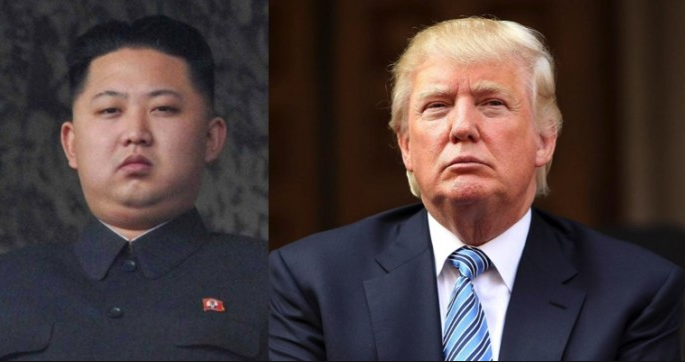President Donald Trump said “all options are on the table” Tuesday in response to North Korea firing a ballistic missile that passed over Japan.
“The world has received North Korea’s latest message loud and clear: this regime has signaled its contempt for its neighbors, for all members of the United Nations, and for minimum standards of acceptable international behavior,” Trump said in a statement.
“Threatening and destabilizing actions only increase the North Korean regime’s isolation in the region and among all nations of the world. All options are on the table.”
This statement is a stark contrast to his predecessor, who, after his initial bluffs were sniffed out, insisted for several years that there was no military option to prevent a nuclear Iran. The result was a historically bad deal achieved in the most embarrassing fashion imaginable.
Trump’s response will no doubt get him dinged by hand-wringing reporters who’ll accuse him of bellicosity, but his approach to dictators with nuclear ambitions is the appropriate one.
Even if one believes a North Korea equipped with an arsenal of ICMBs tipped with nuclear warheads is preferable to the outbreak of a conflict on the Korean peninsula—and I’m not sure it is—one should not signal this to one’s enemy.
“All warfare is based on deception,” Sun Tzu wrote in chapter one of The Art of War. “Hence, when we are able to attack, we must seem unable; when using our forces, we must appear inactive; when we are near, we must make the enemy believe we are far away; when far away, we must make him believe we are near.”
Announcing that war is completely off the table might help one’s poll numbers in a war-weary nation, but it’s not a recipe for peace. Such an attitude only emboldens those who’d seek to gain influence and power by becoming leaders of nuclear powers.
No person of good faith wants to see a war in Iran or North Korea, but neither does any sane person wish to see the proliferation of nuclear weapons, particularly in nations led by madmen or religious fanatics linked to terrorists.
The North Korea threat is quite real, and one could argue that our mercurial president’s unpredictability is perhaps our greatest asset against a man like Kim Jong-Un.
Why? Because an opponent one can’t predict is extremely difficult to fight.
I have a friend I always beat at poker. Always. He is easy to beat because he’s so predictable. The only time I can recall him beating me was on the night of my bachelor party.
My friend rejoined the game at 4 a.m. after having passed out under the table for a couple of hours. He was still skunk drunk, but his inebriation had given him an edge. Suddenly he was a wildcard. He was playing with reckless abandon, raising and re-raising with huge stacks of chips impulsively. He did it all while laughing like a madman, leaving his opponent to guess whether the laughter was because he was drunk or because he knew something the person across from him did not. No one could get a bead on him. I bet he won $300 in two hours.
Trump’s flaws are well documented. But his weird personality is probably an asset in this showdown with the North Koreans.
He is playing a game with much higher stakes against an opponent that is much crazier than my inebriated friend. But the fact that nobody knows how Trump will respond to this looming international crisis might be the ace up our sleeve.
















Leave a Comment
Your email address will not be published. Required fields are marked with *